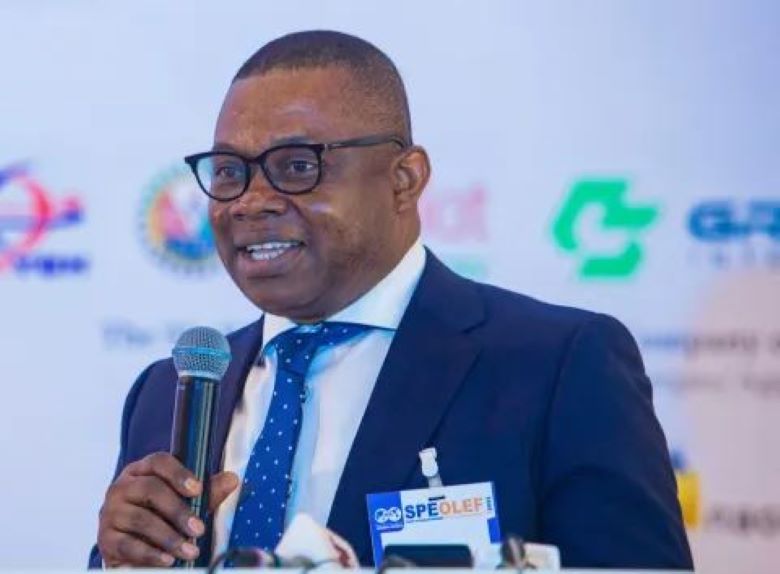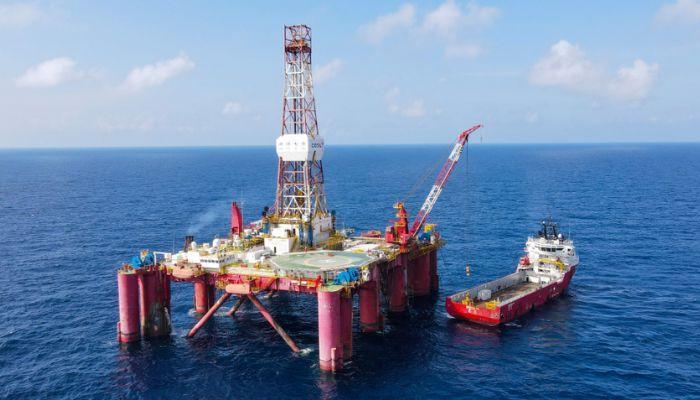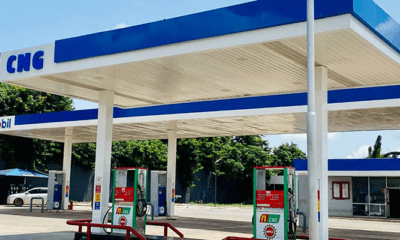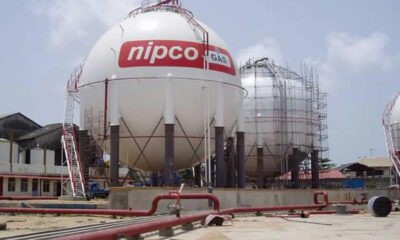Energy
NIPCO embarks on business expansion to aid diversification, others
The Nigerian Independent Petroleum Company (NIPCO), says it has intensified investment in gas infrastructure to aid diversification and Nigeria’s energy transition.
The Managing Director, NIPCO Plc, Mr Suresh Kumar who said this during a facility tour of the company on Sunday in Lagos, added that it would also reduce the country’s dependence on fossil fuels.
Kumar said that the organisation had deepened gas usage and market penetration in the country through massive investment in the sector.
He said that as the Federal Government plans to put an end to fuel subsidy, natural gas by Compressed Natural Gas (CNG) and Auto CNG were bound to be a preferred “fuel of choice.”
According to him, the benefits of the natural gas is that it is safe, environmental friendly, economical, among others.
Kumar said that the company had invested massively in gas infrastructure, in line with Federal Government declaration of 2021 to 2030 as “Nigeria’s Decade of Gas.”
He noted that the declaration is a period the government aspired to accelerate domestic and export gas production and utilisation.
He said that NIPCO is intensifing investment in gas infrastructure to bolster the gas agenda of the Federal Government, which is getting a booster.
According to him, already, the company has established Compressed Natural Gas (CNG) facilities across the country to make cars run on gas.
He added that NIPCO had been expanding its scope on supply of Liquefied Natural Gas (LNG) and constructing new pipeline infrastructure to strategic locations in the country.
Kumar, said the company had invested over $50 million in developing Nigeria’s natural gas over the years, while more projects were still in the offing.
He said,“We have spent more than $50 million on natural gas infrastructure over the years. We believe that there are lots of potential in Nigeria that can be explored for gas utilisation, and this will further boost our economy.
“By using indigenous gas, we can reduce subsidy burden on the Federal Government.
“We can also reduce the importation burden and that will directly or indirectly reduce capital flight and create more employment opportunities for Nigerians.
“We are the pioneers. We always dream for the future. So, we dreamt for natural gas utilisation in Nigeria right from 2008 and we started investing.
“We introduced this model to the government. Nigeria is a country that has abundant natural gas and instead of wasting subsidy on petrol, we should be looking at a blueprint that can change the petrol market to CNG market,” he said.
According to him, NIPCO is an integrated company that supplies Nigerian market with petrol, diesel and gas.
Kamar said the company currently has about 19,500 metric tonnes combined storage capacity for LPG with 10 loading bays, which could truck-out over 4,000 tons per day.
Also speaking, Managing Director, NIPCO Gas, Mr Nagendra Verma, said the company currently has 14 CNG filling stations in various states across Nigeria and another six CNG stations, currently under construction.
He said over 7,000 vehicles were currently running on CNG, adding that over 350 truck fleet belonging to NIPCO were all on gas.
We have workshops which are fully efficient and fully capable to convert PMS vehicles to gas, we have the expertise and we are ready to convert more vehicles to run on gas, he said.
Verma said, “So, we intend to have CNG stations in almost all the states of Nigeria, wherever the pipeline is available.
“Presently, we are laying LNG pipeline for 80 Kilometer pipeline from Shagamu interchange to Ibadan.
“The pipeline work is going on. We expect to commission first phase by the end of December 2023.
“And the entire pipeline is expected to be completed by next year.”
According to him, the company is also developing gas pipeline infrastructure in Lekki Free Trade Zone in Lagos, which is currently nearing completion.
He said the company is currently constructing a propane tank of 500 metric tonnes capacity, the biggest in Nigeria, in a bid to meet up with the Federal Government requirements of mixing certain quantity of propane with butane for domestic gas.
Verma said that the propane tank would be completed in the next three months.
Energy
Seplat Energy to expand gas production capacity by 390 MMSCF


The Chief Operating Officer, Seplat Energy, Mr Samson Ezugworie, says the company is set to increase its gas production capacity by an additional 390 million Standard Cubic Feets (MMSCF) of gas by year end.
Ezugworie disclosed this to newsmen shortly after his participation in a panel session at the Africa Energy Forum held on the sidelines of the Oil Technology Conference (OTC) in Houston, Texas on Wednesday.
The theme of the forum is: “The future of Energy Transformation in Africa: Clean Energy and Business Sustainability”.
He said that the 390 MMSCF of gas would be added to the 460MMSCF of gas per day to make 850 MMSCF of gas per day by year end.
According to the COO, currently the company is producing 460MMSCF of gas per day but would ramp up production to 850 mmscf per day by year end when Assa North Ohaji South (ANOH) and Sapele Gas Plants come on stream.
He maintained that the entire 850MMSCF of gas would be dedicated to the domestic gas market to support economic growth.
He explained that the injection of the 850MMCF of gas would go a long way in solving problems around gas-to-power because the gas produced from its Oben gas plant goes into the national grid, thereby boosting power generation capacity.
On gas pricing and debt, the Seplat boss said this remained a major issue in the industry, which had discouraged most International Oil Companies (IOCs) from investing in gas.
This, he noted, was because the pricing needed to be gotten right while, on the other hand
He said the piling debt for gas produced was a major disincentive, making it a less profitable business.
‘‘But for us at Seplat, what has played out for us is in the areas of strategy and foresight because we clearly know that even if you owe today, there is a chance that you will pay tomorrow because the issue about debt is clearing.
“Now, we are working ourselves into the interruptible gas supply and willing buyer willing seller contracts.
“In addition to that, what we are also doing is that we have a payment structure for those who are off taking our gas that ensures that going forward; we are not going to be having debts piling up. But then, have a structured way of paying outstanding debts.
“Though, it is a delicate balance because this is something we have to do to contribute to the growth of the country.
“At the end of the day, you will see that the profit margin is not that significant,’’.
To lay credence to the claim of low margins, the COO disclosed that gas was 40 per cent of the company’s production at the end of 2023 and liquids 60 per cent.
However, he said revenue from the 40 per cent gas production was 11 per cent at 123 million dollars.
‘‘So, what does that tell you? The revenue margin is very little but not a waste.
“We see that as a good vehicle that we also need to leverage on in running the oil business.
“Why is it so? If you want to run the oil business in a very responsible manner, then it has to go back to the Environment Social Governance (ESG) considerations,” he said.
Ezugworie says the company had concluded plans to end gas flaring in 2025.
He said that Seplat is a Nigerian independent oil and a company listed on both the London and Nigerian Stock Exchanges.
He said the 2025 target would be reached when the Assa North Ohaji South (ANOH) and Sapele gas plants come on stream, thereby increasing its supply capacity to 850MMSCF of gas daily.
He said: “In the past, gas was perceived to be a bad business because all the oil and gas installations did not have a way of harnessing the associated gas from oil production.
“The associated gas was flayed, thereby impacting negatively on the environment.
“Now, that has changed in Seplat. We have made conscious efforts to harness the associated gas by putting in place gas solutions. By the second half of 2025, we will bring routine gas flaring to an end.
“With those two projects coming, and 850 million scf of gas per day capacity, the gas will be used by all and 100 per cent within Nigeria for domestic use.”
Energy
2024 oil bid round are for individuals with proven financial capacity, technical competence – Minister


2024 oil bid round are for individuals with proven financial capacity, technical competence – Minister
. As NUPRC pledges to conduct fair, transparent bids
As part of effort to drive investment and boost the nations economic fortunes, the Minister of State for Petroleum Resources (Oil), Sen Heineken Lokpobiri, says the 17 oil blocs put forward for sale under the 2024 licensing bid round are not for politicians, but investors with financial capacity and technical competence.
Lokpobiri disclosed this during a conference organised by the Petroleum Technology Association of Nigeria (PETAN), at the ongoing 2024 Offshore Technology Conference (OTC), in Houston, Texas U.S
The conference has the theme “Sustainable Energy Solutions for Africa’s Future (Nigerian Perspective).
He said in the past the award of oil blocs culminated to the non-development of over 90 per cent of marginal fields.
This, he said, denied the Federal Government of reaping the intended benefits because such awards were not based on technical and financial considerations.
“We have noticed a lot of idle blocs and little or no investment done on them in the last three years of acquiring them.
“I can tell you for fact that over 90 per cent of owners of these oil blocs are seeking for renewal without commencing or investing on them.
“In this regard, we are saying no more to that, and hence, those seeking for blocs must be financially and technically capable to turn it around and not mere portfolio investors.
“These set of investors are those we consider as men and not boys in the industry.
“The blocs are not for politicians. So, we are downplaying that kind of investors in this new bid rounds.
“However, we have taken away the 200 million signature bonus tied to blocs ownership.
“What we have tried to achieve is to tie such to operations and investment which will encourage investors and drive investment speedily on a field.
“I have worked closely with the NUPRC to ensure that we achieve a seamless transition and bid round sales this year,” Lokpobiri said.
Similarly, the Commission Chief Executive, Nigerian Upstream Petroleum Regulatory Commission, (NUPRC), Mr Gbenga Komolafe, said the recent Presidential Executive Orders issued in March were aimed at improving the efficiency and attractiveness of Nigeria’s oil and gas sector.
Komolafe said that it would culminate in further increasing the nation’s oil and gas reserves, currently standing at 37.5 billion barrels of crude oil and condensate reserves and 209.26 trillion cubic feet of natural gas reserves.
“The exercise, which was initially announced on the 29th of April 2024, is a significant leap in our strategic hydrocarbons development initiative.
“This round introduces twelve meticulously selected blocs across diverse geological spectra — from the fertile onshore basins to the promising continental shelves and the untapped depths of our deep offshore territories.
“Each bloc has been chosen for its potential to bolster our national reserves and stimulate economic vitality.
“Our approach is underpinned by the robust legal framework of the Petroleum Industry Act 2021(PIA), which ensures compliance with best practices to boost investors’ confidence.
“In keeping with the provisions of the PIA and regulations made under the Act, the Commission has issued a licensing round guideline and published a licensing round plan for the twelve blocs.
“Namely PPL 300-CS; PPL 301-CS; PPL 3008; PPL 3009; PPL 2001; PPL 2002; PML 51; PPL 267; PPL 268; PPL 269; PPL 270; and PPL 271).
“In addition to these blocs, the seven deep offshore blocs from the 2022 Mini-Bid Round Exercise which cover an area of approximately 6,700 km2 in water depths of 1,150m to 3,100m shall also be concluded along with this Licensing round.
“To ensure the seamlessness of the licensing round exercise, the NUPRC, in collaboration with our national data repository and multi-client partners.
“Guarantees access to comprehensive and high-quality geological data, facilitating informed decision-making and strategic investments,” he said.
He said that the blocs on offer have extensive 2D and 3D seismic data coverage, including multi-beam and analogue data.
“Additionally, a 3D reprocessed Pre-stack Time Migration of remarkable quality is also available to prospective bidders.
“The availability of advanced seismic datasets and analytical tools via our dedicated portals exemplifies our commitment to excellence and technological advancement.
“Distinguished investors and industry captains and stakeholders, the licencing round is indeed expected to be a huge success for Nigeria and is a big step toward growing the nation’s oil and gas reserves through aggressive exploration and development efforts.
“Boosting production, expanding opportunities for gas utilisation and end-to- end development across the value chain, strengthening energy security and economy.
“Providing occasion to gainfully engage the pool of competent companies in the oil and gas sector with multiplier effect in employment opportunities.
“Enabling transfer of technology, valorising petroleum assets in the Nigerian territory and attracting investments.
“In addition, the licencing round presents us with the opportunity to reinforce Nigeria’s commitment to openness and transparency in line with the principles of the Extractive Industry Transparency Initiative (EITI).
“On the global scale, the licensing round will no doubt be beneficial to all stakeholders and will in the long run contribute to long-term global energy sufficiency.
“Interestingly, the licensing round process was formulated in cognisance of global energy sustainability goals,” he added.
NUPRC has begun a road walk in Houston, for oil bidders and will be in Miami florida next week
Energy
Seplat to deliver 13 new oil wells in 2024


Seplat Energy Plc has announced its drilling program for 2024 with plans to deliver 13 new oil and gas wells across its operated and non-operated assets.
The company disclosed this in its unaudited results for the first quarter ending March 31, 2024.
“The breakdown of the new wells includes 11 dedicated to oil production and two focused on gas production,” it said.
The company stated that its drilling programme delivered one well from the 2024 drilling programme, Ovhor21, in the first quarter of 2024.
It added that it completed two wells; Okporhuru-9, and Sapele-37, which were spudded towards the end of 2023.
“Sapele-37 and Okporhuru-9 had multiple targets in their respective initial plans, and each recorded notable positive results. Each well had secondary exploration targets in previously untested deeper stratigraphy in OML 41.
“We are pleased to announce the discovery of hydrocarbons, predominantly gas, in both wells. Okporhuru -9 well discovered multiple hydrocarbon-bearing intervals in deeper formations,” the company stated.
“The Sapele-37 well, previously known as Sapele-N, discovered hydrocarbons in deeper reservoirs. Additionally, it has confirmed the extension of the Sapele field to the north. Initial findings indicate that these deeper reservoirs could be commercially viable,” the energy company announced.
It added that further technical analysis is currently being conducted to evaluate the potential of Okporhuru, Sapele, and the broader OML41 area at greater depths.
“For the remainder of 2024, we plan to deliver the remaining 12 wells on the 2024 drilling plan. Three wells: Ovhor-22, Sapele-38, and OBEN KIKB-02, are expected to be completed during the second quarter. We expect these wells to support production volumes later in the year,” the company maintained.
According to the Chief Executive Officer, at Seplat Energy, Roger Brown, an executive order has been signed and officially implemented as law, which could significantly enhance Seplat’s contracting procedures and bring about improved efficiency that will contribute to cost reductions.
Seplat Energy Plc has also announced N1,309.88 per $1 as the exchange rate for determining the final and special dividend payout to eligible shareholders who choose to receive their dividends in naira.
Brown said the company has discovered hydrocarbons in deeper reservoirs than had previously been tested at Sapele-37 and Okhorpuru-9.
-
capital market2 years ago
Rt.briscoe, FBNH, Others halts negative performance of stock market
-
Finance3 months ago
Court orders Sen. Victor Umeh to repay N136m bank debt to AMCON
-



 Abuja Update2 months ago
Abuja Update2 months agoUNDP, FG partnership needed to achieve inclusion, equity- Minister
-
Abuja Update1 month ago
Banks drive stock market performance with N147bn gain
-



 Health3 weeks ago
Health3 weeks agoCapacity training will reduce migration of health workers- NPHCDA
-



 Business2 weeks ago
Business2 weeks agoTingo Group unveils Tingo Electric, Tingo Cola drink at Lagos launch
-



 Infotech1 month ago
Infotech1 month agoWorld Backup Day: NITDA urges Nigerians to ensure backup of data
-
News4 months ago
Oil thieves sponsoring malicious media campaign against Navy – Spokesman










